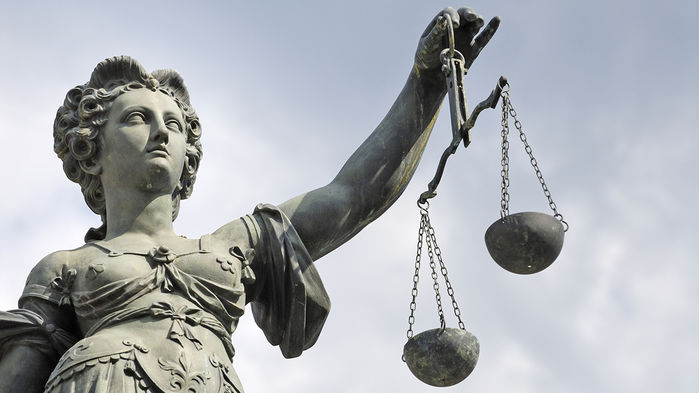Here’s a double-negative brain twister with potentially huge financial ramifications and a Nobel Prize resting on the answer: For an invention to be “nonobvious”—and therefore patentable in the United States—should there be no guarantee of success when researchers embark on experiments that lead to the invention?
That mind-bending question was the centerpiece of a case heard today by the U.S. Court of Appeals for the Federal Circuit in Washington, D.C., over the lucrative patent portfolio surrounding the revolutionary genome editor commonly known as CRISPR. This 2-year-old intellectual property battle pits lawyers from the University of California (UC) against litigators from the Broad Institute in Cambridge, Massachusetts. Both teams represent groups of researchers from several institutions who claim to have made the key discoveries that allow CRISPR, which bacteria naturally use as an immune mechanism, to make precise cuts in the genomes of mammals—technology that ultimately may pave the way for new medical treatments. The invention has spawned several companies, and many expect it will lead to Nobel Prizes for the key scientists.
In April 2014, Broad received the first of several issued patents for the mammalian cell use of CRISPR, which the UC lawyers contested with the U.S. Patent and Trademark Office. But in February 2017, the Patent Trial and Appeal Board (PTAB) ruled in favor of Broad. At a hearing today that ran less than 45 minutes, a lawyer for the UC system asserted that PTAB made a “legal error” in its interpretation of “nonobvious” and asked the appeals court to either reverse the decision or—and this is the more likely scenario—remand the case back to PTAB to reconsider its ruling. “UC did the best they could with the cards they were dealt, but it’s still not looking great for UC,” says Jacob Sherkow, a visiting scholar at Stanford Law School in Palo Alto, California, who has followed the case closely and was at the hearing.
No legal dispute surrounds the UC team’s claim that it made the fundamental invention of how to transform CRISPR from a natural bacterial mechanism into a lab genome editing tool. That was first described on 28 June 2012, in an online Science paper co-authored by Jennifer Doudna of UC Berkeley and Emmanuelle Charpentier, then with Umeå University in Sweden (now with the Max Planck Institute for Infection Biology in Berlin). The controversy centers on who deserves credit for moving the system into mammalian cells, a feat first described by Broad’s Feng Zhang and colleagues on 3 January 2013 in another online Science paper—a few weeks before the UC group and other investigators published similar experiments. The UC researchers say it was obvious to test the system in mammalian cells, even though there was no guarantee it would work. As the university’s lead attorney said in a press release issued shortly before the hearing this morning, Broad and others used “conventional, off-the-shelf tools” to show that CRISPR could cut DNA in eukaryotic cells. UC argues that PTAB incorrectly hinged its pro-Broad decision on the fact that there was no guarantee the eukaryotic experiment would succeed, which would mean Broad met the nonobvious standard.
Sherkow says “there’s some dispute as to what PTAB really ended up saying.” One judge on the three-judge panel today seemed, he adds, “genuinely troubled by some of the way the PTAB described this nonobvious standard,” one was “very harsh against the UC,” and the third asked only technical questions that gave no hint of leanings. “If you are going to handicap [the appeals case], I still think it favors the Broad,” Sherkow says.
After the hearing, Broad issued a statement that said, “We are even more confident the federal circuit will affirm the PTAB’s judgment.”
Charles Robinson, UC general counsel and vice president of legal affairs, also expressed confidence in a statement: “We presented compelling arguments today that the PTAB committed several legal errors, including disregarding Supreme Court and federal circuit precedent. Based on the questioning today, we are optimistic that the court has serious doubts about several aspects of the PTAB’s decision.”
The federal appeals court typically takes several months to issue a ruling.
